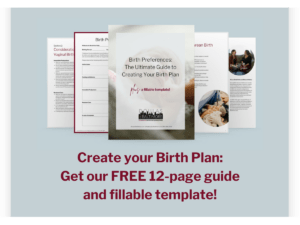Weaning Safely, for Body & Mind
Weaning is deeply personal. Regardless if you have used milk made by your body to feed your child or not, choosing to help your body slow, then stop, the production of breastmilk can be fraught with emotion.
You are going to feel those emotions.
You. Not anyone else, so you get to choose what is going to be best at this point in your life.
Safe weaning is not just referring to keeping your body healthy from infection, but also sharing the reality that anxiety and depression can creep into a relationship thought to be “established.”
Weaning is not an overnight process. Even if the need to end the breastmilk production connects to an extreme emotional loss or tragic event, your breasts are not a faucet that can be turned off. They need time. Your body requires patience, even if in giving it, you get bombarded by emotions that feel overwhelming.
Knowing the very basics of breastfeeding are helpful to know for the weaning period. When your breasts are routinely emptied completely, ideally, your body responds by making more milk. So in very basic terms, to begin weaning, you begin to change how often, or how completely, you empty your breasts of the milk they produce.
If you want/need your breasts to stop producing milk:
- Wear a supportive bra day and night that applies firm pressure on the breasts
- As your breasts feel full, hand express or pump only to the point of relief, to not overstimulate the further creation of milk
- Wear breast pads to absorb leaked liquid
- Your breasts may become tender, and using mild pain medication can help, as well as cooling packs. Placing fresh cabbage leaves inside your bra may also help. Sage tea may also help with weaning.
- Understand that even if your desire exists, your breasts can continue to make milk months, or even years later. However, usually with limited milk expression, pressure, and time, your breasts will have gone through the most significant part of their transition within a couple of weeks.
- Concerns of engorgement, blocked ducts, and mastitis is still relevant in the weaning period, and if you suspect one of these issues, address them promptly.
- Reach out to us for lactation support.
Mental concerns associated with the end of breastmilk production
It has been a new topic of discussion, but there is a possibility for some who produce breastmilk that in ending the production, your body is triggered and responds by experiencing postpartum depression. Postpartum depression can occur at any time after rather birth of your baby, but it is discussed most in the first year of your child’s life, in association with the period directly after “the baby blues” end.
For some, it is surprising to have these new feelings and a desire to disconnect, have anger or rage, anxiety, loss of sleep and appetite, or reduced willingness to engage in activities that would typically be enjoyable. However, weaning depression is possible.
Be aware that the faster you wean, the more drastic a change your hormone levels will be, and the possibility for extreme sadness and depression increases.
If you have concerns about postpartum depression associated with weaning, we recommend:
- Being in contact with support professionals: talk therapists and your OBGYN, as well as postpartum doulas.
- Having an open dialogue with your inner circle of trusted friends and family, to help then know that you will be going through this change, and share how what you may need from them during this period.
- Some examples of support your close friends can give are
- having more frequent phone or unperson conversations
- having a meal prepared
- acknowledgment of the immense change that is happening asking them to bravely be with you in your vulnerable times without judgment recognizing that weaning can be a time of loss or grief, and that grief is gone through- not around
- letting them know you may need help identifying what is happening, and that depression is often not self-diagnosed.
In some cases, it is possible that thoughts of harming yourself or your child accompany the hormonal changes, and in these instances, know that you are not alone, you are not a bad parent, and you do not have to feel the way you are feeling. Asking for help is not a sign of weakness or failure, but an incredibly brave thing to do. You are worthy of support, and you deserve it.
Know that if you have been able to bond with your child because of and during breastfeeding, you have already built trust that will help you bond in other ways. Bonding, closeness, and comfort will continue. Your love will not diminish with the end of your breastfeeding relationship.
Here are some ways you can help yourself during your weaning period:
- Sleep – being intentional with getting the rest your body needs
- Exercise – taking a walk, or moving in any way you feel enrichment from (yoga, swimming, classes, etc.)
- Eat nutrient-rich food
- Cultivate relationships for joy and connection
- Practice positive self-talk and gratitude – your body is incredible and is so strong. It is perfect just the way it is and is worthy of love. Thank your body for being in the place with you.
- Stimulate other positive hormones, like oxytocin, through positive touch and bonding – hugging, eye contact, snuggling, time with close friends, and orgasm
- Breathe – deep belly breaths to help you feel grounded





